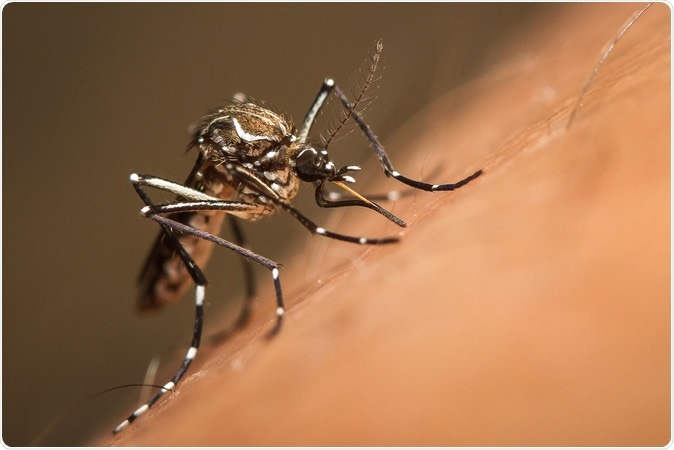Alphabet Inc.’s Verily Life Sciences unit has come up with a plan to release around 20 million bacteria-filled engineered mosquitoes in Fresno, California. These are male mosquitoes that have been reared by machines and the campaign begins this Friday.
Most of the mosquito borne diseases are in fact carried forth in humans and other animals with the help of female mosquitoes. It is the female mosquitoes that bite humans and take blood. The females thus act as vectors or carriers that can carry the viruses (in case of Zika, Dengue, Chikungunya viruses etc.) or parasites (in case of malaria parasites) from one person to another. The male mosquitoes on the other hand do not bite.
This campaign has a simple idea where these swarms of male mosquitoes are reared by machines and they are infected with a harmless bacteria. This bacteria is harmless for humans but in the mosquitoes it leads to forming non-hatching dead eggs when these infected male mosquitoes mate with the female mosquitoes. As the number of live eggs dwindle, so would the number of harmful mosquitoes. At present these mosquitoes are male Aedes aegypti mosquitoes which are known to spread viral infections. According to experts, these infections first arrived in Fresno in 2013 and are now an invasive species in California’s Central Valley.

Aedes aegypti. Image Credit: Torres Garcia / Shutterstock
Verily has been a standalone division of Alphabet in 2015 and since then has grown immensely and taken on several health technology projects. They have raised a huge funding for their efforts and have partnered with the pharmaceutical giants in order to develop new ideas to combat disease using technology and innovations. They managed to raise $800 million from Singapore investment firm Temasek Holdings Ltd. Their latest project with the mosquitoes is aptly called Debug. The experts at the division believe that this project may not show immediate profits or generate revenue, it may prove that Verily has an individual standing in the field of technology in health care and life sciences. Verily engineering Chief Linus Upson, who has an impressive CV, having created Google’s Chrome web browser, now leads the project Debug. Upson said that the burden of these mosquitoes is huge and if this technology works, a sustainable business can come out of it.
These mosquitoes are not genetically modified. This means that there is no real tampering of natural ways. They are just infected with a naturally occurring bacteria called Wolbachia. These mosquitoes live and die normally but are unable to reproduce viably. Wolbachia mosquitoes have been used in the past by other organizations too. It is a well-known arena which could be tapped for effective mosquito vector control say experts. Organizations like the Bill and Melinda Gates Foundation have also been attempting similar methods in countries such as Indonesia and Brazil. However creating these bacteria infected male mosquitoes has been a challenge. Now Verily has come up with automatic machines that can actually count, sort and rear these mosquitoes by their sex and create large numbers of male Wolbachia infected mosquitoes in simpler and more cost effective ways. This makes the Fresno project one of the largest.
According to Verily, a minimum ratio of seven Wolbachia mosquitoes to one wild male or naturally occurring normal male mosquito is necessary to achieve control of the mosquito population as per calculations said Steve Mulligan, district manager of the Consolidate Mosquito Abatement District with whom Verily is partnering with. Another partner in the effort with Verily is Kentucky-based Mosquito Mate. Over the next twenty weeks one million mosquitoes would be released every week. The areas where the mosquitoes would be released or the trial site are across two 300-acre neighbourhoods. Come Friday, the vans carrying the mosquitoes could start with streets of Fancher Creek in the Fresno County.